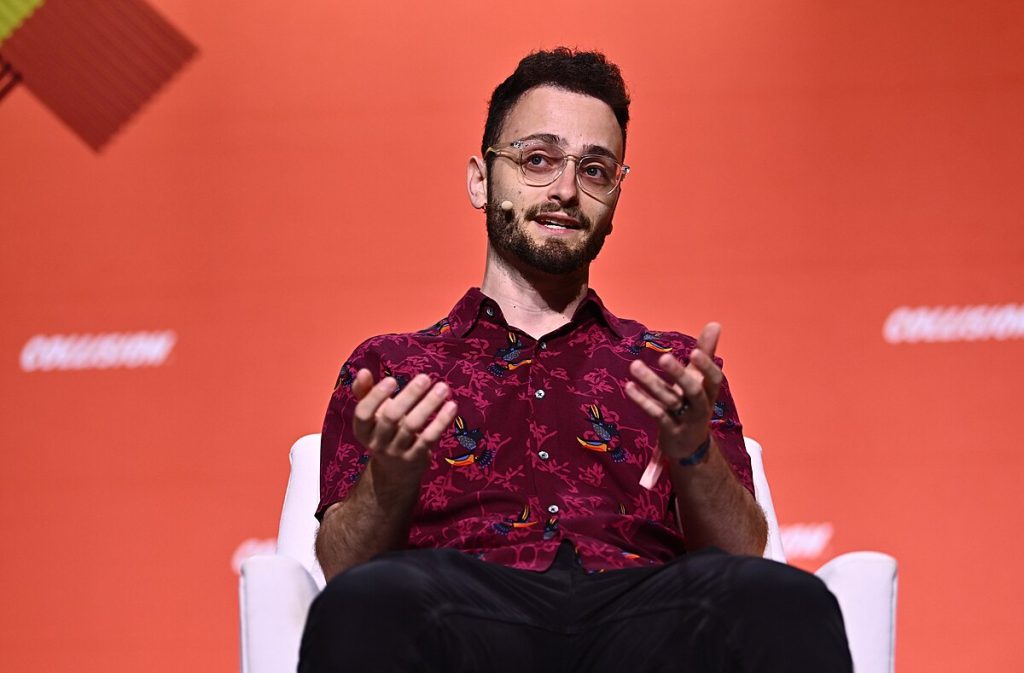This isn’t just a story about a boring old board game. This is a story about how a worldwide pandemic, a hit Netflix series, a scandal involving buttplugs, and a paradigm shift in media consumption caused a dusty board game to soar to new heights.
A Brief History

Chess has been around for centuries, it is a board game that has truly stood the test of time. But while most of us have played it at some point in our lives, it used to be that the real chess fandom was reserved for the ‘nerds’. A subculture banished to the fringes of society.
All of this changed though around early 2021. A freak storm of digital culture and media resulted in a sudden and drastic change in the stigma of chess as a game and as a subculture. Reaching new heights of popularity, chess not only became mainstream, but for the first time in a long time, chess had become ‘cool’ again.
Covid-19

It all started in 2020 when a world-wide pandemic forced the world into social isolation. With people forced to stay home and work and socialize through their screens. With this new entirely digital social landscape screentime nearly doubled1 This in turn created the perfect breeding ground for online streaming platforms to boom.
The Queen’s Gambit

One such streaming platform that flourished under covid-lockdowns was Netflix. And with the release of their original series The Queen’s Gambit in October of 2020 they ignited a spark. The show starring Anya Taylor-Joy depicted the life of an orphan chess prodigy. A life filled with drama, drugs and alcohol, mental illness, and genius chess. The show depicted chess as more than just a boring game, but as something edgy, sexy and exciting.
The Queen’s Gambit racked up 62 million stream in the first 4 weeks and went on to win a whole slew of awards, most prominently the Primetime Emmy Award for Outstanding Limited Or Anthology Series. It became the first streaming series ever to win a Primetime Emmy, which was historically reserved for shows aired on TV.
A streaming series winning the Primetime Emmy Award is significant, and it exemplifies a shift in media consumption in society away from TV, and towards streaming platforms like Netflix.2
YouTube and Twitch
During lockdown, people also flocked to watch independent creators on platforms such as YouTube and Twitch. Youtube for example grew to 2.5 billion users in 2021, up 500 million users from 2019’s 2.0 billion.
Riding on the hype-train that The Queen’s Gambit caused we see a rise in interest in chess content on these platforms. The most prominent figure in online chess entertainment/educational content is IM Levy Rozman, known more widely by his YouTube handle GothamChess. Levy rose quickly from a couple ten thousand subscribers in early 2020 to over a million subscribers in mid-2021. Nowadays Levy has over 5 million subscribers and is the largest chess channel on YouTube.

Besides content creators seeing a rise to fame, we also see already famous chess players having taken on online content creation as another form of creating income and engagement. Prominent figures include GM Hikaru Nakamura, the number two ranked player in the world according to FIDE, who regularly streams on Twitch. Even the 10-time world champion of chess Magnus Carlsen has his own YouTube channel, a surprising career shift after he refused to defend his title in 2023 and took a hiatus from playing classical chess.
Carlsen v Niemann Controversy
Speaking of Magnus Carlsen, I believe the third happening that caused chess to spike in popularity has to do with a controversy that sparked in 2022. At the Sinquefield Cup the world champion lost a game to teenage prodigy Hans Niemann. After the match, Carlsen implied Niemann had cheated, something which Niemann has admitted to doing in online games when he was younger. This allegation however was of over-the-board cheating, something which seemingly would be much harder to do.

This allegation caused massive controversy, and the internet went wild with theories as to how Niemann could have cheated over the board. The most widely spread theory was one involving a program that converted chess moves calculated by a computer to a series of coded vibrations sent directly to a… buttplug. After the buttplug allegation Niemann even offered to play Carlsen naked, to prove he wasn’t using any electronic aids. Hans Niemann proceeded to file a lawsuit against Magnus Carlsen for $100 million. The lawsuit went on for the better part of two years before being settled.
I should say that there is no actual evidence that Niemann cheated during the match, less even that adult toys were involved. But if there is anything that gets the internet going it is controversy mixed with a little bit of sexy perversion.
The combination of a hit Netflix series about a rockstar chess prodigy, the shift to digital content, and the controversy around Carlsen and Niemann have all contributed to chess reaching a new peak in popularity.
- Nagata, Jason M, Catherine A Cortez, Chloe J Cattle, Kyle T Ganson, Puja Iyer, Kirsten Bibbins-Domingo, and Fiona C Baker. “Screen Time Use Among US Adolescents During the COVID-19 Pandemic: Findings From the Adolescent Brain Cognitive Development (ABCD) Study.” JAMA Pediatrics 176, no. 1 (2022): 94–96. doi:10.1001/jamapediatrics.2021.4334. ↩︎
- Evens, Tom, Amandine Henderickx, and Peter Conradie. “Technological Affordances of Video Streaming Platforms: Why People Prefer Video Streaming Platforms over Television.” European Journal of Communication (London) 39, no. 1 (2024): 3–21. doi:10.1177/02673231231155731. ↩︎




Recent Comments